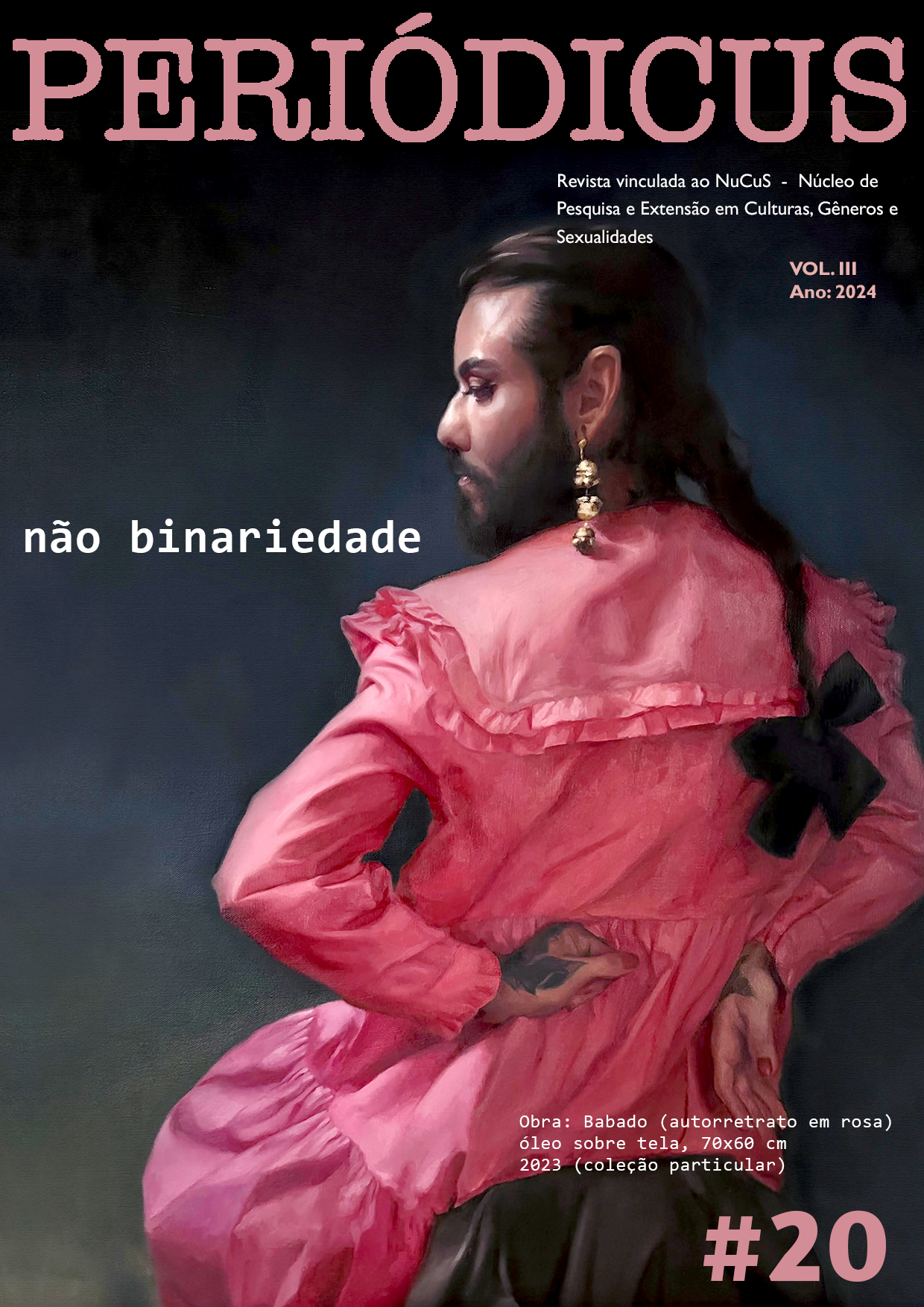Inventando o Trabalho Sexual
DOI:
https://doi.org/10.9771/peri.v3i20.59310Resumo
Resumo: A presente contribuição é uma tradução ao português brasileiro do ensaio Inventing sex work (1997) da ativista estadunidense Carol Leigh/ Scarlot Harlot, composta a partir de sua versão em inglês e da tradução ao castelhano, La invención del Trabajo Sexual (2016) realizada por Cecilia Varela (CONICET/UBA) e Santiago Morcillo (CONICET/UNSJ). No texto, Harlot relata em primeira pessoa seu processo de formação como militante feminista nas décadas de 1970 e 1980 em diversas agrupações, notando a estigmatização com a qual as prostitutas eram tratadas nesses espaços. Essa inquietude, somada às suas próprias experiências como prostituta e à necessidade de encontrar novas maneiras de nomear a atividade laboral, a levou a cunhar, em suas intervenções feministas, os termos “trabalho sexual”, “trabalhadora do sexo” e “indústria do trabalho sexual”. Recupera-se este ensaio de grande importância para as lutas contemporâneas das trabalhadoras do sexo, além de se discutir em nota alguns aspectos do processo de tradução.
Palavras-chave: Scarlot Harlot; Trabalho Sexual; Prostituição, Putafeminismo; Tradução Feminista.
Downloads
Downloads
Publicado
Como Citar
Edição
Seção
Licença
Copyright (c) 2024 Maria Barbara Florez Valdez, Penélope Serafina Chaves Bruera

Este trabalho está licenciado sob uma licença Creative Commons Attribution-NonCommercial 4.0 International License.
Autores que publicam nesta revista concordam com os seguintes termos:
Autores mantêm os direitos autorais e concedem à revista o direito de primeira publicação, com o trabalho simultaneamente licenciado sob Licença Creative Commons Attribution Noncommercial que permite o compartilhamento do trabalho com reconhecimento da autoria e publicação inicial nesta revista, sendo vedado o uso com fins comerciais.
Autores têm autorização para assumir contratos adicionais separadamente, para distribuição não-exclusiva da versão do trabalho publicada nesta revista (ex.: publicar em repositório institucional ou como capítulo de livro), com reconhecimento de autoria e publicação inicial nesta revista.
Autores têm permissão e são estimulados a publicar e distribuir seu trabalho online (ex.: em repositórios institucionais ou na sua página pessoal) a qualquer ponto antes ou durante o processo editorial, já que isso pode gerar alterações produtivas, bem como aumentar o impacto e a citação do trabalho publicado (Veja O Efeito do Acesso Livre).








